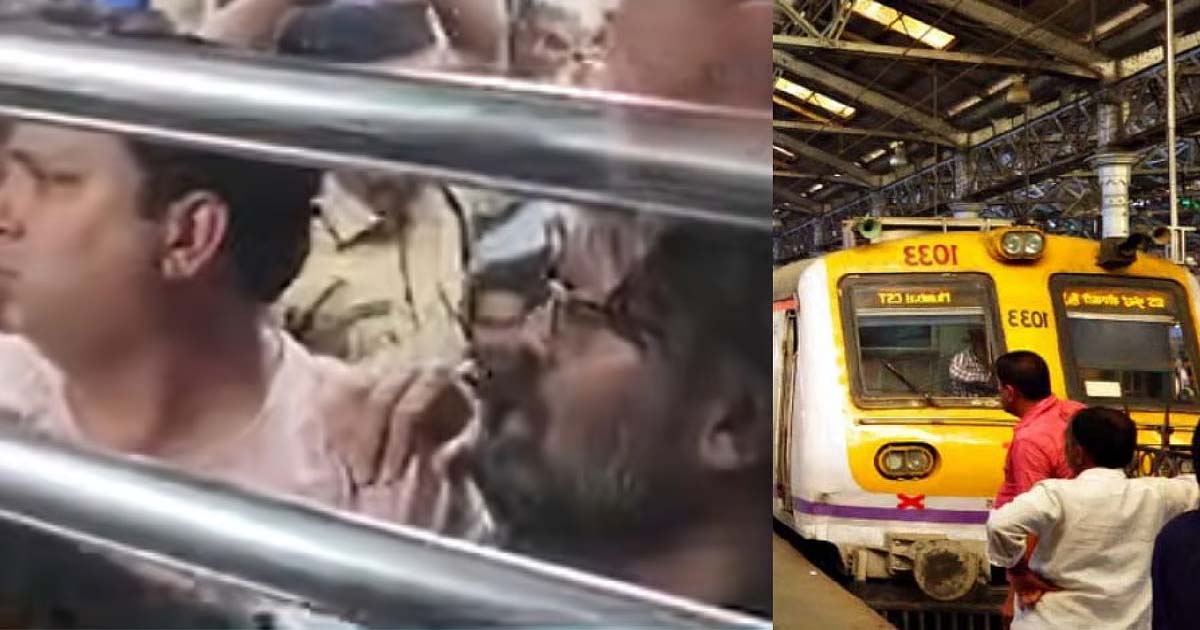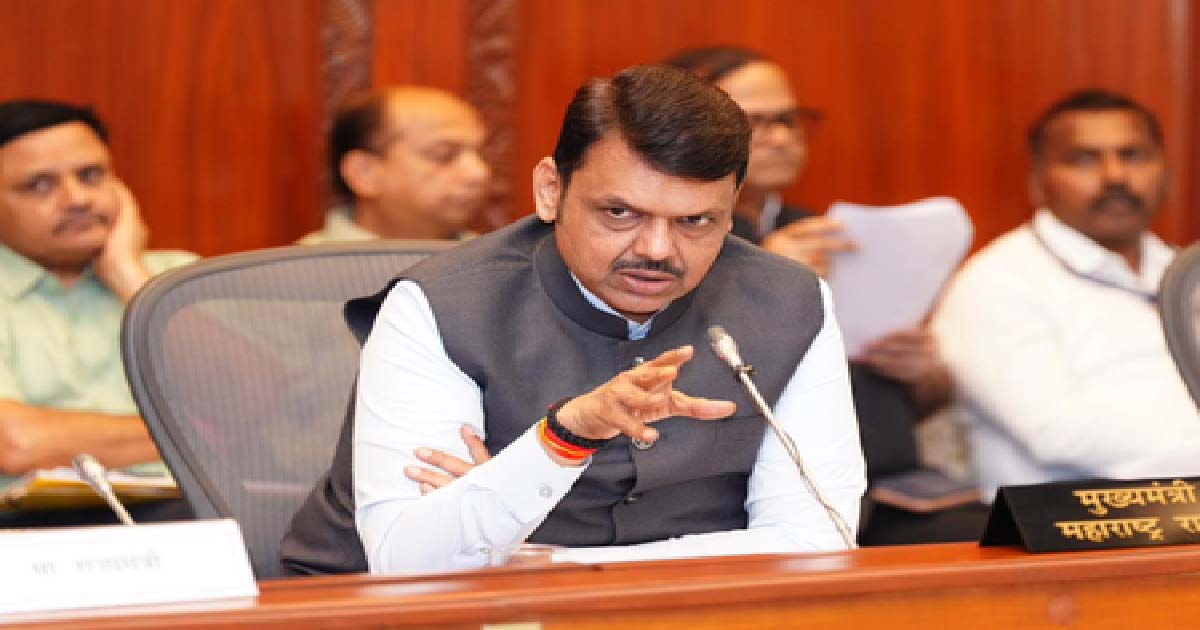National News
Women safety: Andhra CM flags off 163 DISHA patrolling vehicles
In a bid to control crime against women and enhance DISHA surveillance, Andhra Pradesh Chief Minister YS Jagan Mohan Reddy on Wednesday flagged off 163 DISHA patrolling vehicles which will improve and strengthen visible policing, a key component of curbing crime.
All of these four-wheelers are equipped with a dedicated GPS tracking system for direct monitoring from the District Unit Control Room. These patrol vehicles carry out continuous patrols in crime prone areas, officials said.
“The vehicles will help improve response times to women and children in emergency situations” Reddy said.
The vehicles will be able to identify and map all possible crime areas within each police station limit, as well as identify and map details of past crime, time and place.
The 163 new patrolling vehicles are in addition to the already existing 900 two-wheelers currently used for patrolling in all the police stations limits across the state. Funds have been allocated for the purchase of 163 vehicles of Direction Patrolling four wheelers at a cost of Rs 13.85 crore. In addition, Rs 5.5 crore has already been allocated for this operation.
In addition to the existing 900 two-wheelers and 163 four-wheeler direction patrol vehicles, more than 3,000 emergency vehicles are now being connected to the control room at the police headquarters along with the DISHA control room set up at 18 police units across the state for quick response to citizens in case of emergencies. This allows police to reach out to victims by a special SOS features (any woman in danger can alert the local police by just shaking her phone five times or pressing the SOS button in the app). These specialised vehicles help to reduce the response time from 4-5 minutes in urban areas to 8-10 minutes in the same rural areas.
The DISHA mobile application has already been downloaded by 1.16 crore women on their mobile phones, Reddy noted.
With more women joining the police department, the government also introduced 18 caravans or mobile restrooms for women police personnel on duty in public places.
Crime
Ulhasnagar Woman Harassed in Divyang Coach Of Mumbai Local Train; 2 Arrested

Kalyan: In a shocking incident, a 26-year-old woman from Ulhasnagar was allegedly harassed in the Divyang coach of a Mumbai local train on December 2. The incident occurred on Tuesday, December 2, at around 8.15 pm.
In the video shared by, while returning from work in Thane, she boarded the Central Railways Thane-Kalyan train. After the train crossed Dombivali, the woman argued with the accused, identified as Anup Surendra Singh, and Abhilasha Arjun Nayar regarding the Divyang pass. The woman alleged that after she had a heated argument, the two accused caught her hand and even eve-teased her.
When they got down at Ulhasnagar station, all three, along with another eyewitness, had a huge argument at the station. Railway Police soon reached the platform, where several women intervened and confronted the officers about the incident. The police then later moved the accused to the Kalyan Railway Police Station, and based on the woman’s complaint, a case was registered under Section 74 of the Bharatiya Nyaya Sanhita (BNS). Both the accused have been arrested.
Meanwhile, last month, a 25-year-old transgender person was arrested by the Vashi Government Railway Police (GRP) for allegedly molesting a 28-year-old woman aboard a Panvel to CSMT local train on 2 November. The incident occurred around 12.10 pm when the train was nearing Nerul station. The accused, when he boarded the general compartment of the harbour line train, was seeking alms from passengers. When the train crossed Seawoods station, an argument broke out between the accused and a male passenger who refused to give money.
The man, accompanied by a female friend, asked the accused to move ahead, leading to a heated verbal exchange. During the confrontation, the accused allegedly abused the man and touched the woman on her shoulder, which made her uncomfortable. A complaint was filed and the accused was taken into custody by the Vashi GRP.
Business
India-AI Impact Summit 2026 to generate actionable recommendations: Minister

New Delhi, Dec 3: Reflecting India’s growing role in global AI discussions, the country will host the India-AI Impact Summit 2026 here from February 16–20, the government said on Wednesday.
For the first time, the global AI summit series will take place in the Global South and the shift signals a broader move toward a more inclusive global AI dialogue, said Union Minister of State for Electronics and IT, Jitin Prasada, in Lok Sabha.
“In line with Prime Minister Narendra Modi’s vision, the government is democratising the development and usage of technology. The focus is using Artificial Intelligence (AI) for solving real-world problems and ultimately improving lives across various sectors,” said the minister.
In this regard, the government has taken an inclusive and innovation-friendly approach to AI governance. India’s AI strategy has been formed after studying legal frameworks around the world and extensive consultation with stakeholders. A key pillar of India’s AI strategy is its balanced and pragmatic techno-legal approach to regulation.
The summit reflects India’s growing role in global AI discussions. It follows the UK AI Safety Summit, AI Seoul Summit, Paris AI Action Summit (which India co-chaired), and the Global AI Summit on Africa.
This demonstrates that the Summit is situated within a broader global discourse and seeks to contribute to harmonised international cooperation on responsible AI development, said the minister.
The thematic priorities of the Summit, referred to as the seven ‘Chakras’, underline its key objectives. These include Human Capital, Inclusion, Safe and Trusted AI, Resilience, Innovation and Efficiency, Democratizing AI Resources, and AI for Economic Development and Social Good.
These thematic areas encompass issues such as AI safety, data governance, transparency, human-centred development and accountability frameworks. These discussions are aligned to drive the strategic direction of the Summit’s events and deliberations.
The Summit is intended to generate actionable recommendations that contribute to long-term AI governance objectives rather than framing immediate binding regulations.
National News
Maha Legislature’s winter session from December 8 to 14

Mumbai, Dec 3: Amid local body polls, the winter session of the Maharashtra Legislature will be held from December 8 to 14 in Nagpur.
The schedule was finalised on Wednesday at the meetings of the Business Advisory Committee (BAC) of the state Assembly and Council held at Vidhan Bhavan.
The winter session duration was earlier announced from December 8 to 19, when both Houses were prorogued after the conclusion of the monsoon session held in July.
However, the winter session duration has been curtailed as polling during the second phase of the Nagar Parishad and Nagar Panchayat elections is slated for December 20 and counting on December 21.
Speaker Rahul Narwekar chaired the BAC meeting of the state Assembly, while state council Chairman Ram Shinde presided over the BAC meeting of the upper house.
The opposition parties, including Shiv Sena (UBT), Congress and NCP(SP), during the BAC meetings strongly demanded that the duration of the winter session should be not less than three weeks.
They also demanded that the appointment of leaders of the opposition in the state council and Assembly, respectively, should be done without further delays.
Shiv Sena (UBT) legislator Anil Parab confirmed that he and Congress legislator Satej Patil met Chief Minister Devendra Fadnavis, demanding the appointment of leaders of the opposition.
“It is unconstitutional to hold winter session of the state legislature in the absence of the leaders of the opposition,” he said.
He added that the Chief Minister assured them they would “consider the matter positively.”
Shiv Sena (UBT) legislator Bhaskar Jadhav criticised the government’s “dilly-dallying” over the appointment of leaders of the opposition in the state Council and Assembly, saying that the government fears the opposition’s presence.
“They (ministers) are not brave enough to face the opposition’s barrage of questions,” he claimed. Jadhav slammed the state government for “curtailing” the winter session, demanding that its duration should have been three weeks.
Shiv Sena (UBT) legislator Anil Parab attributed the short duration of the winter session to the impending Municipal Corporation elections in Mumbai, Pune, Nashik, and other major cities, suggesting the government is reluctant to address issues comprehensively before the polls.
“A one-week session is not enough to raise all of Maharashtra’s issues. We only hope that at least Vidarbha’s core issues can be addressed since the session is in Nagpur,” he remarked.
Bhaskar Jadhav argued that the government is “not prepared to extend the session” because, despite having a large majority, “they do not have answers to the torrent of questions from the opposition”.
Bhaskar Jadhav launched a scathing attack on the State Election Commission (SEC) for its alleged inaction on pre-election financial schemes.
“The current State Election Commission seems to be blind, mute, and deaf and working for a political party. Previously, the SEC used to immediately stay financial schemes announced just before elections. But this commission is watching with open eyes while government money is being distributed to buy people’s votes,” he commented.
In a sharp counterattack, BJP legislator Ram Kadam dismissed the opposition’s criticism of the session duration.
“These are the same people who used to wrap up the session in two or three days when they were in power. They are now teaching us how long a session should be,” he retorted.
“These frustrated people need medical treatment,” he said.
Kadam affirmed that the Chief Minister and both Deputy Chief Ministers, Eknath Shinde and Ajit Pawar, were fully prepared to answer all the opposition’s questions and that the BJP does not work based on election schedules, as elections are a matter for the State Election Commission.
-

 Crime3 years ago
Crime3 years agoClass 10 student jumps to death in Jaipur
-

 Maharashtra1 year ago
Maharashtra1 year agoMumbai Local Train Update: Central Railway’s New Timetable Comes Into Effect; Check Full List Of Revised Timings & Stations
-

 Maharashtra1 year ago
Maharashtra1 year agoMumbai To Go Toll-Free Tonight! Maharashtra Govt Announces Complete Toll Waiver For Light Motor Vehicles At All 5 Entry Points Of City
-

 Maharashtra1 year ago
Maharashtra1 year agoFalse photo of Imtiaz Jaleel’s rally, exposing the fooling conspiracy
-

 National News1 year ago
National News1 year agoMinistry of Railways rolls out Special Drive 4.0 with focus on digitisation, cleanliness, inclusiveness and grievance redressal
-

 Maharashtra1 year ago
Maharashtra1 year agoMaharashtra Elections 2024: Mumbai Metro & BEST Services Extended Till Midnight On Voting Day
-

 National News1 year ago
National News1 year agoJ&K: 4 Jawans Killed, 28 Injured After Bus Carrying BSF Personnel For Poll Duty Falls Into Gorge In Budgam; Terrifying Visuals Surface
-

 Crime1 year ago
Crime1 year agoBaba Siddique Murder: Mumbai Police Unable To Get Lawrence Bishnoi Custody Due To Home Ministry Order, Says Report












